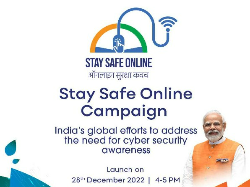STI-RTI
Introduction and Overview of STI/RTI
Sexually Transmitted Infections (STI) and Reproductive Tract Infections (RTI) have a major impact on sexual and reproductive health. As per the World Health Organization (WHO), globally 499 million new episodes of curable sexually transmitted infections (syphilis, gonorrhoea, chlamydia and trichomoniasis) occur yearly (2008 estimates); a significant proportion of these infections occurring in developing countries. Sexually transmitted infections are an important cause of infertility in men and women. In pregnant women with untreated early syphilis, 21% of pregnancies result in stillbirth and 9% in neonatal death. Drug resistance, especially for gonorrhoea, is a major threat to STI control globally. Some STI can increase the risk of HIV acquisition and transmission by three-fold or more.
Of the more than 30 identified pathogens known to be transmitted sexually, syphilis, gonorrhoea, chlamydia, trichomoniasis, human immunodeficiency virus (HIV), human papilloma virus (HPV), herpes simplex virus (HSV), and hepatitis B virus (HBV) have been linked to the greatest incidence of illness.
Sexually Transmitted Infections/Reproductive Tract Infections (STI/RTI) are an important public health problem in India. A community based STI/RTI prevalence study conducted during 2002-03 by the Indian Council of Medical Research (ICMR) has shown that 6% of the adult population in India has one or more STI/RTI. This amounts to occurrence of about 30-35 million episodes of STI/RTI every year in the country. Controlling STI/RTI helps to decrease HIV infection rates and provides a window of opportunity for counselling on HIV prevention and improving sexual and reproductive health.
Currently, the available data from the STI/RTI control and prevention programme suggests a significant decline of bacterial STI (syphilis, gonorrhoea). Chancroid is almost on the verge of disappearance. On the other hand, viral STI (herpes, genital warts, hepatitis B) are showing an increasing trend. There is a significant burden of lower RTI (trichomoniasis, bacterial vaginosis and candidiasis) among women with no evidence to suggest a decline in their prevalence, thus affecting the quality of their reproductive health.
National and State health policies and Indian Public Health Standards (IPHS) are prescribed to achieve and maintain quality of care to the community through the public healthcare delivery system and to achieve programmatic goals. The STI/RTI management services are a key programme strategy for prevention of HIV. The syndromic case management of STI/RTI is adopted as a universal strategy, is applicable at all levels of the health care system (Primary, Secondary and Tertiary care) and ensures access to a package of standardized STI/RTI management services both for the general population with an emphasis on pregnant and nonpregnant women, children and adolescents and high risk behaviour groups.
The Designated STI/RTI Clinic (DSRC) comprises both STI and Gynaecology clinic and should have cross referral linkages with Integrated Counselling & Testing Centres (ICTC), Prevention of Parent to Child Transmission (PPTCT) centres, Anti retroviral Therapy (ART) centres, Blood Banks, Adolescent Reproductive and Sexual Health (ARSH) clinics, FP/FW clinics, other speciality clinics and general laboratory, Targeted Intervention projects, and Care and Support Centres including PLHIV networks. This ensures enhanced coverage and better utilization of DSRC (STI/RTI) services. Further, DSRC should also have referral linkages with State STI Training and Reference Laboratories (SSTRL) and Regional STI Training, Research and Reference Laboratories (RSTRRL) for managing cases of suspected treatment failure and persistent infections.
The National AIDS Control Programme IV (NACP IV) acknowledges the need for engaging with both organized Public Sector and Private Sector in provision of STI/RTI services. It is important that treatment facilities in both public and private sectors are linked to targeted interventions projects which will enhance the access to and coverage of quality STI/RTI service delivery to general population and high risk behaviour groups. This will help to standardize and scale up the STI/RTI management services. Universal adherence to standardized drug regimens helps to reduce emergence of drug resistance.
Services available in the State under NSACS:
| No. of Designated STI/RTI Clinic (DSRC) | 12 | All District Hospital including Police Referral Hospital, Chumukidema |
| State Reference Center (SRC) | 1 | Naga Hospital Authority, Kohima |
STI Counselors
| No | Name | Place of Posting | Contact No | |
| 1 | Ms. Besutalu Curhah | Peren Dist. Hospital | 9402640534 | atalucurhah036@gmail.com |
| 2 | Ms. Sentirenla Aier | Mokokchung Dist. Hospital | 9436325044 | senti.aier02@gmail.com |
| 3 | Ms. Nutalü H Keyho | Phek Dist. Hospital | 9366160662 | nutaluhkeyho@gmail.com |
| 4 | Ms. Vikali T. Sumi | Zunheboto Dist. Hospital | 8259866846 | vekalichickhe@gmail.com |
| 5 | Ms. M. Lithie Phom | Longleng Dist. Hospital | 9436446655 | litheinyam91@gmail.com |
| 6 | Ms. Monglang Konyak | Mon Dist. Hospital | 8974919012 | amongth@yahoo.com |
| 7 | Ms. Khrielavonuo Solo | NHAK Kohima | 7005815274 | Soloangela55@gmail.com |
| 8 | Ms. Arhoni Kikon | Wokha Dist Hospital | 8414840033 | arhonikikon361@gmail.com |
| 9 | Mr. Imotemjen Sangtam | Tuensang Dist. Hospital | 8974633174 | imotemjenstm@gmail.com |
| 10 | Mr. Kiutsumong K | Kiphire Dist. Hospital | 8974993473 | klkiutsutikhir@gmail.com |
| 11 | Ms. Bendangienla Imsong | Dimapur Dist. Hospital | 9856314894 | aienbendang55@gmail.com |
| 12 | Ms. Bendangrenla | Police Referral Hospital, Chumukedima | 9856314894 | Brenj2020@gmail.com |

